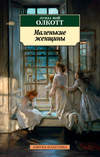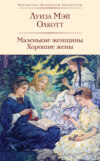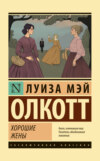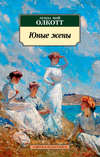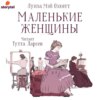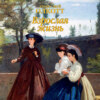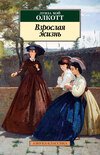Читать книгу: «Moods», страница 9
CHAPTER XI.
WOOING
Nothing could have been more unlike than the two pairs of lovers who from April to August haunted Mr. Yule's house. One pair was of the popular order, for Mark was tenderly tyrannical, Jessie adoringly submissive, and at all hours of the day they were to be seen making tableaux of themselves. The other pair were of the peculiar order, undemonstrative and unsentimental, but quite as happy. Moor knew his power, but used it generously, asking little while giving much. Sylvia as yet found nothing to regret, for so gently was she taught, the lesson could not seem hard, and when her affection remained unchanged in kind, although it deepened in degree, she said within herself —
"That strong and sudden passion was not true love, but an unwise, unhappy delusion of my own. I should be glad that it is gone, because I know I am not fit to be Warwick's wife. This quiet feeling which Geoffrey inspires must be a safer love for me, and I should be grateful that in making his happiness I may yet find my own."
She tried heartily to forget herself in others, unconscious that there are times when the duty we owe ourselves is greater than that we owe to them. In the atmosphere of cheerfulness that now surrounded her she could not but be cheerful, and soon it would have been difficult to find a more harmonious household than this. One little cloud alone remained to mar the general sunshine. Mark was in a frenzy to be married, but had set his heart on a double wedding, and Sylvia would not fix the time, always pleading —
"Let me be quite sure of myself before I take this step, and do not wait."
Matters stood thus till Mark, having prepared his honeymoon cottage, as a relief to his impatience, found it so irresistible that he announced his marriage for the first of August, and declared no human power should change his purpose. Sylvia promised to think of it, but gave no decided answer, for though she would hardly own it to herself she longed to remain free till June was past. It came and went without a sign, and July began before the longing died a sudden death, and she consented to be married.
Mark and Jessie came in from the city one warm morning and found Sylvia sitting idly in the hall. She left her preparations all to Prue, who revelled in such things, and applied herself diligently to her lesson as if afraid she might not learn it as she should. Half way up stairs Mark turned and said, laughing —
"Sylvia, I saw Searle to-day, – one of the fellows whom we met on the river last summer, – and he began to tell me something about André and the splendid cousin, who is married and gone abroad it seems. I did not hear much, for Jessie was waiting; but you remember the handsome Cubans we saw at Christmas, don't you?"
"Yes, I remember."
"Well, I thought you'd like to know that the lad had gone home to Cleopatra's wedding, so you cannot have him to dance at yours. Have you forgotten how you waltzed that night?"
"No, I've not forgotten."
Mark went off to consult Prue, and Jessie began to display her purchases before eyes that only saw a blur of shapes and colors, and expatiate upon their beauties to ears that only heard the words – "The splendid cousin is married and gone abroad."
"I should enjoy these pretty things a thousand times more if you would please us all by being married when we are," sighed Jessie, looking at her pearls.
"I will."
"What, really? Sylvia, you are a perfect darling! Mark! Prue! she says she will!"
Away flew Jessie to proclaim the glad tidings, and Sylvia, with a curious expression of relief, regret, and resolve, repeated to herself that decided —
"I will."
Every one took care that Miss Caprice should not have time to change her mind. The whole house was soon in a bustle, for Prue ruled supreme. Mr. Yule fled from the din of women's tongues, the bridegrooms were kept on a very short allowance of bride, and Sylvia and Jessie were almost invisible, for milliners and mantua-makers swarmed about them till they felt like animated pin-cushions. The last evening came at length, and Sylvia was just planning an escape into the garden when Prue, whose tongue wagged as rapidly as her hands worked, exclaimed —
"How can you stand staring out of window when there is so much to do? Here are all these trunks to pack, Maria in her bed with every tooth in a frightful state of inflammation, and that capable Jane What's-her-name gone off while I was putting a chamomile poultice on her face. If you are tired sit down and try on all your shoes, for though Mr. Peggit has your measure, those absurd clerks seem to think it a compliment to send children's sizes to grown women. I'm sure my rubbers were a perfect insult."
Sylvia sat down, tugged on one boot and fell into a reverie with the other in her hand, while Prue clacked on like a wordmill in full operation.
"How I'm ever to get all these gowns into that trunk passes my comprehension. There's a tray for each, of course; but a ball dress is such a fractious thing. I could shake that Antoinette Roche for disappointing you at the last minute; and what you are to do for a maid, I don't know. You'll have so much dressing to do you will be quite worn out; and I want you to look your best on all occasions, for you will meet everybody. This collar won't wear well; Clara hasn't a particle of judgment, though her taste is sweet. These hose, now, are a good, firm article; I chose them myself. Do be sure you get all your things from the wash. At those great hotels there's a deal of pilfering, and you are so careless."
Here Sylvia came out of her reverie with a sigh that was almost a groan.
"Don't they fit? I knew they wouldn't!" said Prue, with an air of triumph.
"The boots suit me, but the hotels do not; and if it was not ungrateful, after all your trouble, I should like to make a bonfire of this roomful of haberdashery, and walk quietly away to my new home by the light of it."
As if the bare idea of such an awful proceeding robbed her of all strength, Miss Yule sat suddenly down in the trunk by which she was standing. Fortunately it was nearly full, but her appearance was decidedly ludicrous as she sat with the collar in one uplifted hand, the hose in the other, and the ball dress laid over her lap like a fainting lady; while she said, with imploring solemnity, which changed abruptly from the pathetic to the comic at the end of her speech —
"Sylvia, if I ever cherished a wish in this world of disappointment, it is that your wedding shall have nothing peculiar about it, because every friend and relation you've got expects it. Do let me have the comfort of knowing that every one was surprised and pleased; for if the expression was elegant (which it isn't, and only suggested by my trials with those dressmakers), I should say I was on pins and needles till it's all over. Bless me! and so I am, for here are three on the floor and one in my shoe." Prue paused to extract the appropriate figure of speech which she had chosen, and Sylvia said —
"If we have everything else as you wish it, would you mind if we didn't go the journey?"
"Of course I should. Every one goes a wedding trip, it's part of the ceremony; and if two carriages and two bridal pairs don't leave here to-morrow, I shall feel as if all my trouble had been thrown away."
"I'll go, Prue, I'll go; and you shall be satisfied. But I thought we might go from here in style, and then slip off on some quieter trip. I am so tired I dread the idea of frolicking for a whole month, as Mark and Jessie mean to do."
It was Prue's turn to groan now, and she did so dismally. But Sylvia had never asked a favor in vain, and this was not the moment to refuse to her anything, so worldly pride yielded to sisterly affection, and Prue said with resignation, as she fell to work more vigorously than ever, because she had wasted five good minutes —
"Do as you like, dear, you shall not be crossed on your last day at home. Ask Geoffrey, and if you are happy I'm satisfied."
Before Sylvia could thank her sister there came a tap and a voice asking —
"Might I come in?"
"If you can get in," answered Prue, as, reversing her plan in her hurry, she whisked the collar into a piecebag and the hose into a bandbox.
Moor paused on the threshold in a masculine maze, that one small person could need so much drapery.
"May I borrow Sylvia for a little while? A breath of air will do her good, and I want her bright and blooming for to-morrow, else young Mrs. Yule will outshine young Mrs. Moor."
"What a thoughtful creature you are, Geoffrey. Take her and welcome, only pray put on a shawl, Sylvia, and don't stay out late, for a bride with a cold in her head is the saddest of spectacles."
Glad to be released Sylvia went away, and, dropping the shawl as soon as she was out of Prue's sight, paced up and down the garden walks upon her lover's arm. Having heard her wish and given a hearty assent Moor asked —
"Where shall we go? Tell me what you would like best and you shall have it. You will not let me give you many gifts, but this pleasure you will accept from me I know."
"You give me yourself, that is more than I deserve. But I should like to have you take me to the place you like best. Don't tell me beforehand, let it be a surprise."
"I will, it is already settled, and I know you will like it. Is there no other wish to be granted, no doubt to be set at rest, or regret withheld that I should know? Tell me, Sylvia, for if ever there should be confidence between us it is now."
As he spoke the desire to tell him of her love for Adam rose within her, but with the desire came a thought that modified the form in which impulse prompted her to make confession. Moor was both sensitive and proud, would not the knowledge of the fact mar for him the friendship that was so much to both? From Warwick he would never learn it, from her he should have only a half confidence, and so love both friend and wife with an untroubled heart. Few of us can always control the rebellious nature that so often betrays and then reproaches, few always weigh the moment and the act that bans or blesses it, and where is the life that has not known some turning-point when a fugitive emotion has decided great issues for good or ill? Such an emotion came to Sylvia then, and another temptation, wearing the guise of generosity, urged her to another false step, for when the first is taken a second inevitably follows.
"I have no wish, no regret, nothing but the old doubt of my unstable self, and the fear that I may fail to make you happy. But I should like to tell you something. I don't know that you will care for it, or that there is any need to tell it, but when you said there should be confidence between us, I felt that I wanted you to know that I had loved some one before I loved you."
He did not see her face, he only heard her quiet voice. He had no thought of Adam, whom she had known so short a time, who was already bound; he only fancied that she spoke of some young lover who had touched her heart, and while he smiled at the nice sense of honor that prompted the innocent confession, he said, with no coldness, no curiosity in voice or face —
"No need to tell it, dear. I have no jealousy of any one who has gone before me. Rest assured of this, for if I could not share so large a heart with one who will never claim my share I should not deserve it."
"That is so like you! Now I am quite at ease."
He looked down at her as she went beside him, thinking that of all the brides he had ever seen his own looked least like one.
"I always thought that you would make a very ardent lover, Sylvia. That you would be excited, gay, and brilliant at a time like this. But you are so quiet, so absorbed, and so unlike your former self that I begin to think I do not know you yet."
"You will in time. I am passionate and restless by nature, but I am also very sensitive to all influences, personal or otherwise, and were you different from your tranquil, sunshiny self, I too should change. I am quiet because I seem in a pleasant state, half-waking, half dreaming, from which I never wish to wake. I am tired of the past, contented with the present, and to you I leave the future."
"It shall be a happy one if I can make it so, and to-morrow you will give me the dear right to try."
"Yes," she said, and thinking of the solemn promises to be then made, she added, thoughtfully, "I think I love, I know I honor, I will try to obey. Can I do more?"
Well for them both if they could have known that friendship is love's twin, and the gentle sisters are too often mistaken for each other. That Sylvia was innocently deceiving both her lover and herself, by wrapping her friendship in the garb her lost love had worn, forgetting that the wanderer might return and claim its own, leaving the other to suffer for the borrowed warmth. They did not know it, and walked tranquilly together in the summer night, planning the new life as they went, and when they parted Moor pointed to a young moon hanging in the sky.
"See, Sylvia, our honeymoon has risen."
"May it be a happy one!"
"It will be, and when the anniversary of this glad night comes round it shall be shining still. God bless my little wife."
CHAPTER XII.
WEDDING
Sylvia was awakened on her wedding morning by a curious choking sound, and starting up found Prue crying over her as if her heart were broken.
"What has happened? Is Geoffrey ill? Is all the silver stolen? Can't the Bishop come?" she asked, wondering what calamity could move her sister to tears at such a busy time.
Prue took Sylvia in her arms, and rocking to and fro as if she were still a baby, poured forth a stream of words and tears together.
"Nothing has happened; I came to call you, and broke down because it was the last time I should do it. I've been awake all night, thinking of you and all you've been to me since I took you in my arms nineteen years ago, and said you should be mine. My little Sylvia, I've been neglectful of so many things, and now I see them all; I've fretted you with my ways, and haven't been patient enough with yours; I've been selfish even about your wedding, and it won't be as you like it; you'll reproach me in your heart, and I shall hate myself for it when you are gone never to be my care and comfort any more. And – oh, my dear, my dear, what shall I do without you?"
This unexpected demonstration from her prosaic sister touched Sylvia more than the most sentimental lamentations from another. It brought to mind all the past devotion, the future solitude of Prue's life, and she clung about her neck tearless but very tender.
"I never shall reproach you, never cease to love and thank you for all you've been to me, my dear old girl. You mustn't grieve over me, or think I shall forget you, for you never shall be forsaken; and very soon I shall be back, almost as much your Sylvia as ever. Mark will live on one side, I shall live on the other, and we'll be merry and cosy together. And who knows but when we are both out of your way you will learn to think of yourself and marry also."
At this Prue began to laugh hysterically, and exclaimed, with more than her usual incoherency —
"I must tell you, it was so very odd! I didn't mean to do so, because you children would tease me; but now I will to make you laugh, for it's a bad omen to cry over a bride, they say. My dear, that gouty Mr. MacGregor, when I went in with some of my nice broth last week (Hugh slops so, and he's such a fidget, I took it myself), after he had eaten every drop before my eyes, wiped his mouth and asked me to marry him."
"And you would not, Prue?"
"Bless me, child, how could I? I must take care of my poor dear father, and he isn't pleasant in the least, you know, but would wear my life out in a week. I really pitied him, however, when I refused him, with a napkin round his neck, and he tapped his waistcoat with a spoon so comically, when he offered me his heart, as if it were something good to eat."
"How very funny! What made him do it, Prue?"
"He said he'd watched the preparations from his window, and got so interested in weddings that he wanted one himself, and felt drawn to me I was so sympathetic. That means a good nurse and cook, my dear. I understand these invalid gentlemen, and will be a slave to no man so fat and fussy as Mr. Mac, as my brother calls him. It's not respectful, but I like to refresh myself by saying it just now."
"Never mind the old soul, Prue, but go and have your breakfast comfortably, for there's much to be done, and no one is to dress me but your own dear self."
At this Prue relapsed into the pathetic again, and cried over her sister as if, despite the omen, brides were plants that needed much watering.
The appearance of the afflicted Maria, with her face still partially eclipsed by the chamomile comforter, and an announcement that the waiters had come and were "ordering round dreadful," caused Prue to pocket her handkerchief and descend to turn the tables in every sense of the word.
The prospect of the wedding breakfast made the usual meal a mere mockery. Every one was in a driving hurry, every one was very much excited, and nobody but Prue and the colored gentlemen brought anything to pass. Sylvia went from room to room bidding them good-by as the child who had played there so long. But each looked unfamiliar in its state and festival array, and the old house seemed to have forgotten her already. She spent an hour with her father, paid Mark a little call in the studio where he was bidding adieu to the joys of bachelorhood, and preparing himself for the jars of matrimony by a composing smoke, and then Prue claimed her.
The agonies she suffered during that long toilet are beyond the powers of language to portray, for Prue surpassed herself and was the very essence of fussiness. But Sylvia bore it patiently as a last sacrifice, because her sister was very tender-hearted still, and laughed and cried over her work till all was done, when she surveyed the effect with pensive satisfaction.
"You are very sweet, my dear, and so delightfully calm, you really do surprise me. I always thought you'd have hysterics on your wedding-day, and got my vinaigrette all ready. Keep your hands just as they are, with the handkerchief and bouquet, it looks very easy and rich. Dear me, what a spectacle I've made of myself! But I shall cry no more, not even during the ceremony as many do. Such displays of feeling are in very bad taste, and I shall be firm, perfectly firm, so if you hear any one sniff you'll know it isn't me. Now I must go and scramble on my dress; first, let me arrange you smoothly in a chair. There, my precious, now think of soothing things, and don't stir till Geoffrey comes for you."
Too tired to care what happened just then, Sylvia sat as she was placed, feeling like a fashion-plate of a bride, and wishing she could go to sleep. Presently the sound of steps as fleet as Mark's but lighter, waked her up, and forgetting orders, she rustled to the door with an expression which fashion-plates have not yet attained.
"Good morning, little bride."
"Good morning, bonny bridegroom."
Then they looked at one another, and both smiled. But they seemed to have changed characters, for Moor's usually tranquil face was full of pale excitement; Sylvia's usually vivacious one, full of quietude, and her eyes wore the unquestioning content of a child who accepts some friendly hand, sure that it will lead it right.
"Prue desires me to take you out into the upper hall, and when Mr. Deane beckons, we are to go down at once. The rooms are full, and Jessie is ready. Shall we go?"
"One moment: Geoffrey, are you quite happy now?"
"Supremely happy!"
"Then it shall be the first duty of my life to keep you so," and with a gesture soft yet solemn, Sylvia laid her hand in his, as if endowing him with both gift and giver. He held it fast and never let it go until it was his own.
In the upper hall they found Mark hovering about Jessie like an agitated bee, about a very full-blown flower, and Clara Deane flapping him away, lest he should damage the effect of this beautiful white rose. For ten minutes, ages they seemed, the five stood together listening to the stir below, looking at one another, till they were tired of the sight and scent of orange blossoms, and wishing that the whole affair was safely over. But the instant a portentous "Hem!" was heard, and a white glove seen to beckon from the stair foot, every one fell into a flutter. Moor turned paler still, and Sylvia felt his heart beat hard against her hand. She herself was seized with a momentary desire to run away and say "No" again; Mark looked as if nerving himself for immediate execution, and Jessie feebly whispered —
"Oh, Clara, I'm going to faint!"
"Good heavens, what shall I do with her? Mark, support her! My darling girl, smell this and bear up. For mercy sake do something, Sylvia, and don't stand there looking as if you'd been married every day for a year."
In his excitement, Mark gave his bride a little shake. Its effect was marvellous. She rallied instantly, with a reproachful glance at her crumpled veil and a decided —
"Come quick, I can go now."
Down they went, through a wilderness of summer silks, black coats, and bridal gloves. How they reached their places none of them ever knew; Mark said afterward, that the instinct of self preservation led him to the only means of extrication that circumstances allowed. The moment the Bishop opened his book, Prue took out her handkerchief and cried steadily through the entire ceremony, for dear as were the proprieties, the "children" were dearer still.
At Sylvia's desire, Mark was married first, and as she stood listening to the sonorous roll of the service falling from the Bishop's lips, she tried to feel devout and solemn, but failed to do so. She tried to keep her thoughts from wandering, but continually found herself wondering if that sob came from Prue, if her father felt it very much, and when it would be done. She tried to keep her eyes fixed timidly upon the carpet as she had been told to do, but they would rise and glance about against her will.
One of these derelictions from the path of duty, nearly produced a catastrophe. Little Tilly, the gardener's pretty child, had strayed in from among the servants peeping at a long window in the rear, and established herself near the wedding group, looking like a small ballet girl in her full white frock and wreath pushed rakishly askew on her curly pate. As she stood regarding the scene with dignified amazement, her eye met Sylvia's. In spite of the unusual costume, the baby knew her playmate, and running to her, thrust her head under the veil with a delighted "Peep a bo!" Horror seized Jessie, Mark was on the brink of a laugh, and Moor looked like one fallen from the clouds. But Sylvia drew the little marplot close to her with a warning word, and there she stayed, quietly amusing herself with "pooring" the silvery dress, smelling the flowers and staring at the Bishop.
After this, all prospered. The gloves came smoothly off, the rings went smoothly on; no one cried but Prue, no one laughed but Tilly; the brides were admired, the grooms envied; the service pronounced impressive, and when it ended, a tumult of congratulations arose.
Sylvia always had a very confused idea of what happened during the next hour. She remembered being kissed till her cheeks burned, and shaken hands with till her fingers tingled; bowing in answer to toasts, and forgetting to reply when addressed by the new name; trying to eat and drink, and discovering that everything tasted of wedding cake; finding herself up stairs hurrying on her travelling dress, then down stairs saying good by; and when her father embraced her last of all, suddenly realizing with a pang, that she was married and going away, never to be little Sylvia any more.
Prue was gratified to her heart's content, for, when the two bridal carriages had vanished with handkerchiefs flying from their windows, in answer to the white whirlwind on the lawn, Mrs. Grundy, with an approving smile on her aristocratic countenance, pronounced this the most charming affair of the season.












